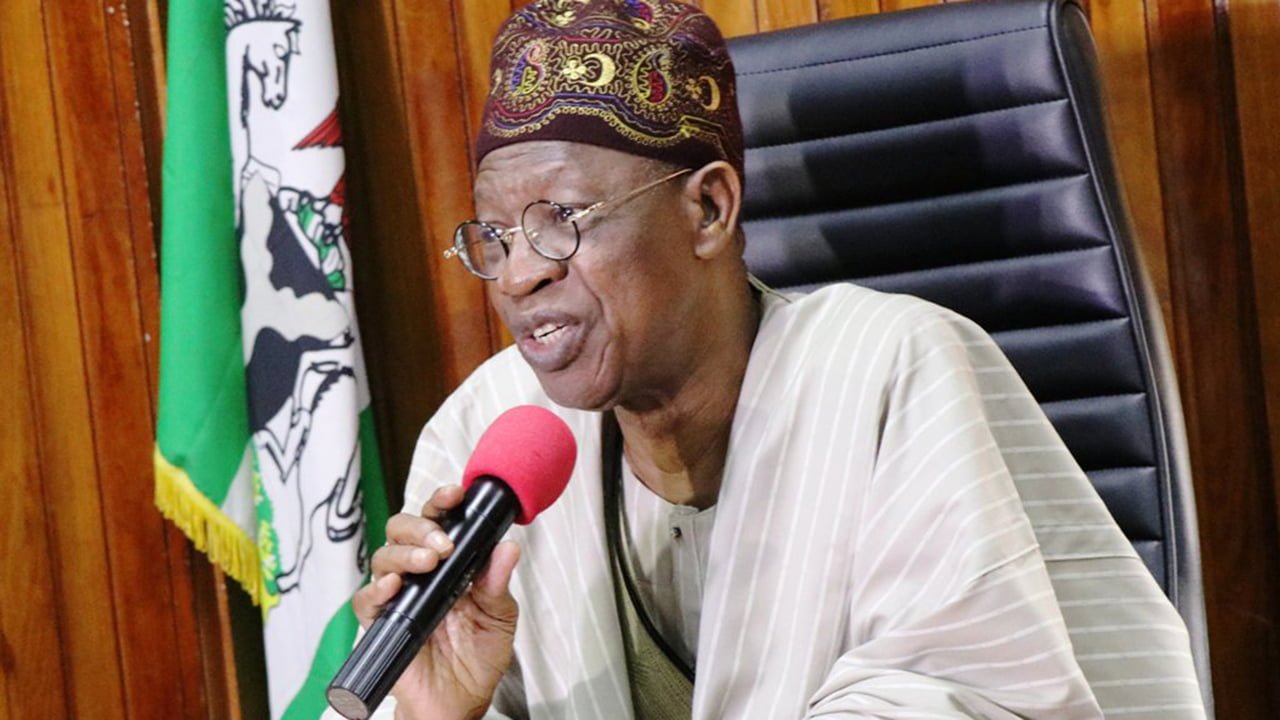Like Boko Haram like the Taliban

10 reasons why Boko Haram still shoots and bombs despite defeat
By Theophilus Abbah
At the rate Boko Haram terrorists launch suicide attacks, lay siege on the military, kill helpless civilians, and kidnap the vulnerable in the North-East in spite of their sack from Sambisa Forest, it is apparent that the violent Jihadi sect has been deflated but not conquered. Not even when the sect is torn apart by the power struggle between Abubakar Shekau and Mamman Nur’s faction led by Abu Musab al-Barnawi. It is, however, simplistic to conclude that such division is a blessing to the army, as examples from religious terrorist groups who rose against the 1918 partitioning of the land of Islam, the Ottoman Empire, show that Mujahedeen do not have defeat in their linguistic repertoire.
Right wing; left wing; narcotic; other religious; dissident, and criminal terrorists could lose ground, face, momentum and even vision when their efforts are contaminated by division. But that is hardly the case with jihadi terrorists who consider death as victory. The following are some of the reasons why Boko Haram, like other jihadi terrorists sects, fight on despite being decimated.
1. The Base: For Al-Qaeda, the Taliban and ISIS, having a base, a community in which they could blend with, and where they could use force to coerce the people to accept their authority, has been vital. Osama bin Laden migrated from Saudi Arabia to Sudan and later to Afghanistan before he could execute his anti-American project. The one-eyed leader Mullah Mohammed Omar of the Taliban in Afghanistan was holed up in Kandahar all the years he led the Jihadi sect, though his fighters went to all wings of Afghanistan to win battles and rule. It is for the same reason that ISIS founder, Abu Musah al-Zarqawi, migrated to Iraq to blend with the Sunni sect from where he declared the Islamic Caliphate. Abubakar Shekau and al-Barnawi apparently still have a base in the North-East, communities from where they could hide, snake in and out, impose the Sharia rule, and do damage to the Nigerian state and people, hence they can still fight in defeat.
2. The Taliban thrived in Afghanistan as a result of the high supply of ignorant and ignoble youth population from impoverished tribes and refugee camps in Pakistan. Of course, the name ‘Taliban’ literally means ‘the pupils’ who learn under self-styled ‘mullahs,’ in an atmosphere similar to the informal almajiri educational system. Unfortunately, this setting is similar to what we have in the North-East, where displaced youths, out of school who are wallowing in hopelessness are ready harvests for Abubakar Shekau and al-Barnawi. Tens of thousands of illiterate, orphaned youths leading rudderless lives and facing a blank future get recruited into either Shekau or al-Barnawi’s camps. They live ‘nobody-cares-for-me’ lives, giving them away as armies of Jihadi groups.
3. For terrorist organisations, one of their live-wires is cash flow. The Taliban in Afghanistan and al-Qaeda in Yemen generated income from illegal trade in opium, smuggling and tax. In Afghanistan, for instance, the Mujahedeen controlled highways and compelled traders who transported produce from Pakistan to Central Asia to pay heavy taxes for passage. With porous borders in the North-East, Tran-Saharan routes from Maiduguri through Chad, Cameroon, Central African Republic, up to the Middle East, present terrorists with this kind of opportunity to rake in illicit income, dispossess traders of their goods, cart away goods in markets, engage in robberies and kidnapping and all sorts of extortionist activities. This cash-flow gives them the energy to resist the military in spite of their loss of Sambisa Forest.
4. Access to illicit weapons: Both Al-Barnawi and Shekau access illicit weapons through the porous Sahel routes, where expelled terrorists from Algeria and Mali hold sway. It is not clear how much weapons Al-Barnawi gets from ISIS, but his camp could purchase weapons using the cash they extort from unfortunate persons in their ‘domains.’ This story is similar to what happened in Yemen, where every Mujahedeen carried an illegal weapon on the street. The weapons were smuggled in from Eastern Europe. Jihadists in the Middle East, Asia and Africa have their networks for seamless supplies of illicit weapons.
5. The Caliphate has been the goal of every Jihadi group, especially since ISIS declared one in 2014. It is for this reason that the camps of Shekau and Al-Barnawi will engage in efforts to exercise control over some territories, no matter how small. Reports have said the two even hold courts in parts of the North-East. Shiekh Abu Bakr Al-Baghadadi’s concept of Caliphate simplifies the challenge to all Jihadi groups all over the world. He wants them to institute Sharia rule in their localities as a way of considering themselves as part of the caliphate, with its headquarters in Iraq. This way, their challenge would be to hold onto their territory, but pledge allegiance to ISIS, and that is what Shekau and Al-Barnawi want to achieve, notwithstanding their rivalry.
6. Common enemies: There is a power tussle between Shekau and Al-Barnawi, but they recognize their common enemies – Crusaders (Christians), the West, and Jews. These constitute the ‘infidels’. Al-Barnawi’s only adjustment to this view is that Shekau extended to Muslims the punishments meted out to ‘infidels’. He condemned Shekau for attacking Muslims and Mosques. At the moment, while Al-Barnawi’s faction attacks military formations, Shekau’s faction attacks everyone else, including Muslims and Mosques. This ‘division of labour’ makes the battle more dangerous than when the sect was united.
7. Intellectual support: A classical sign of the desperation of Jihadi groups across the world is the strategic efforts to lure intellectuals into their folds, irrespective of the levels of education of their leaders. In Yemen, for instance, graduates were recruited into their folds and trained in Damaj, one of the world’s most renowned institutions for training Jihadists. These bring their professional knowledge to bear in their Jihadi activities. Both Al-Barnawi and Shekau may still have intellectuals providing intelligence, military and other strategic supports, in spite of their decimation by the military.
8. Death is not defeat: To Jihadists, from Al-Qaeda to ISIS, death is victory, not defeat. The sin of the Jihadist is forgiven because he fights the cause of God. Even when the Taliban lost 3,000 of its best troops in a 1997 battle of Mazar in Afghanistan, they were not discouraged. It conscripted more youths to engage in further battle against government forces. Therefore, killing thousands of Boko Haram fighters, may not necessary translate to the sect’s defeat.
9. Yes, the world can perish: A lesson from the havoc by ISIS in Iraq, Syria and Libya is that Jihadists have no regard for human civilization – multi-billion dollar monuments could be destroyed to prove a point. Therefore, it does not matter to Boko Haram if the city of Maiduguri is reduced to rubble.
10. The power of language: The most powerful sentence in Jihadist discourses remains, ‘We’re doing the work of God.’ This positive framing of murder, destruction and atrocities, effectively controls the minds of thousands of potential recruits. Even learned individuals are hypnotized by this expression. They reduce their intellectual heights to the size of this argument and get recruited into the ranks of Jihadists. From ISIS to Al-Qaeda, al-Shabaab, Taliban… the idea that Jihadists fight for God changes victims’ perception, turning the terrorists’ bloody and evil acts into righteous and golden deeds. Perhaps, this discourse is the most powerful weapon in the arsenal of Shekau and al-Barnawi. Government has not effectively countered it.
From the 10 issues raised above, it is apparent that insurgency cannot be shot or bombed to defeat.
Government should compete with the sect in seizing the hearts of the people from the sect. Governor Shettima Kashim took the first step by setting up a committee which assesses the sermons preached in mosques in Maiduguri. This step is just one of many that should be taken. Is it impossible to establish an FM radio devoted to broadcasting anti-Boko Haram sermons? Why can’t government set up a free newspaper published in Arabic and Hausa, denouncing the sect? Why can’t we set up an intelligence network that could reward whistleblowers on secret recruitment of youths into their ranks? We need to learn anti-terrorism lessons from Algeria, which successfully chased Jihadists, not only from power, but from Algeria into the God-forgotten sun in the Sahel region. Algerian authorities mobilized its citizens against al-Qaeda in the Magrib, such that the people resisted the sect’s rhetoric. The people repelled the Jihadists – there was no more any hiding place for al-Qaeda in Algeria. This approach may be a long-term measure, but government has to take steps today.
It’s time to fight Boko Haram with all our hearts and minds…
Theophilus Abbah is a doctoral candidate in the Department of English Language at the University of Abuja. His research area is Forensic Stylistics Analyses of Transcripts of Boko Haram’s pronouncements. He hopes to produce theories on the ‘Language of Terrorism’.
The Insight Report
Nigeria Coverage



